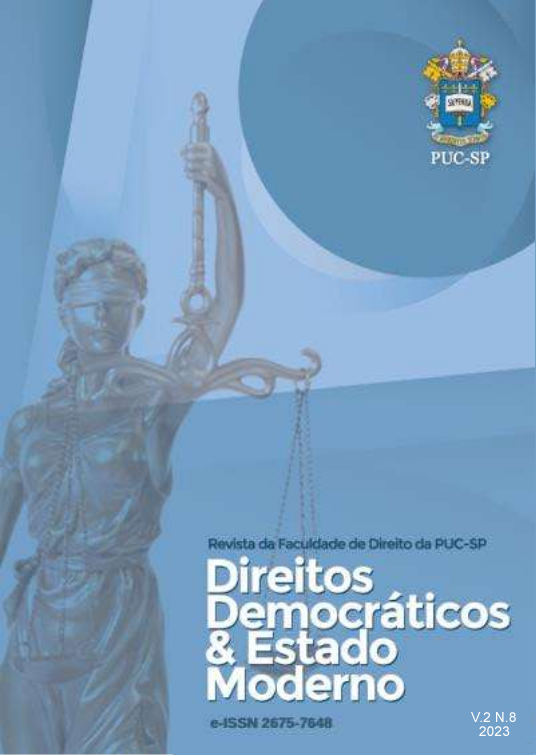Labor compliance in observing the United Nations guiding principles on business and human rights
DOI:
https://doi.org/10.23925/ddem.v.2.n.8.61212Keywords:
UN Guiding Principles, Human Rights, Social function of the company, Labor Compliance, Due diligenceAbstract
Understanding the need to respect minimum parameters of human dignity in employment relationships and implement social rights, the UN recognized that the company, because it holds significant economic power, as a counterpart and because of the social function it performs, is obliged to respect the rights humans. In this sense, it approved, in 2011, a recommendation containing the guiding principles of the United Nations on companies and human rights, whose pillars are to protect, respect and repair. , after simply describing the emergence of the program, this research seeks to analyze the use of the due diligence tool in human rights, which is a legal investigation procedure, observing the guiding principles of the UN, in particular number 17.O The study has a descriptive and exploratory character, with a deductive method, resorting to bibliographic and documental research types, based on a review of books, articles, periodicals, documents from specialized organizations and national and international standards on the proposed problem.
References
BRASIL. DECRETO Nº 11.129, DE 11 DE JULHO DE 2022. Regulamenta a Lei nº 12.846, de 1º de agosto de 2013, que dispõe sobre a responsabilização administrativa de pessoas jurídicas pela prática de atos contra a administração pública, nacional ou estrangeira e dá outras providências. Brasília, 18 de março de 2015. Disponível em: https://www.planalto.gov.br/ccivil_03/_Ato2019022/2022/Decreto/D11129.htm#art70 Acesso em 12/06/2023.
BRASIL. Presidência da República. Lei Nº 13.467, de 13 de julho de 2017. Altera a Consolidação das Leis do Trabalho (CLT), aprovada pelo Decreto-Lei no 5.452, de 1o de maio de 1943, e as Leis nos 6.019, de 3 de janeiro de 1974, 8.036, de 11 de maio de 1990, e 8.212, de 24 de julho de 1991, a fim de adequar a legislação às novas relações de trabalho. Brasília (DF), 2017. Disponível em: http://www.planalto.gov.br/ccivil_03/_ato2015-2018/2017/lei/l13467.htm. Acesso em 30/07/2022.
BRASIL. Presidência da República. Decreto-Lei no 5.452, de 1o de maio de 1943. Aprova a Consolidação das Leis do Trabalho. Rio de Janeiro, 01 de maio de 1943. Disponível em: http://www.planalto.gov.br/ccivil_03/decreto-lei/del5452.htm Acesso em 30/07/2022.
BRASIL. Presidência da República.Decreto-Lei n.º 9.571 de 21 de novembro de 2018.Estabelece as diretrizes nacionais sobre empresas e direitos humanos. Disponível em: https://www.planalto.gov.br/ccivil_03/_Ato2015-2018/2018/Decreto/D9571.htm Acesso em 30/07/2022.
BRASIL. Presidência da República. Decreto-Lei n.º 11.205 de 26 de setembro de 2022. Institui o Programa de Estímulo a conformidade normativa trabalhista - Governo Mais legal – Trabalhista no âmbito do Ministério do Trabalho e Previdência. Disponível em: <http://www.planalto.gov.br/ccivil_03/_ato2019-2022/2022/decreto/D11205.htm>. Acesso em 30/07/2022.
CARVALHO, André Castro; ALVIM, Tiago Cripa; BERTOCCELLI, Rodrigo; VENTURINI, Otavio (Coord). Manual de Compliance. 2. ed. Rio de Janeiro: Forense, 2020.
COMPARATO, Fábio Konder. A Civilização Capitalista. São Paulo: Saraiva, 2017.
LAMY FILHO, Alfredo. A função social da empresa e o imperativo de sua reumanização. In Revista de Direito Administrativo. Rio de Janeiro, v. 190. Outubro/dezembro de 1992, p. 54-60.
RUGGIE, John Gerard. Quando negócios não são apenas negócios: as corporações multinacionais e os direitos humanos. São Paulo: Planeta Sustentável, 2014.
SILVA, Rui Bezerra. O que é Compliance? Conceitos & Ferramentas na Visão de um Auditor Interno. Editora: Albatroz, Rio de Janeiro, 2018.
Downloads
Published
How to Cite
Issue
Section
License
Copyright (c) 2023 Democratic Rights & Modern State

This work is licensed under a Creative Commons Attribution 4.0 International License.
This work is licensed under a License Creative Commons Atribuição 4.0 Internacional.
The authors grant the journal all copyrights relating to the published works. The concepts issued in signed articles are the absolute and exclusive responsibility of their authors.
DD&EM Magazine - ISSN 2675-7648

















